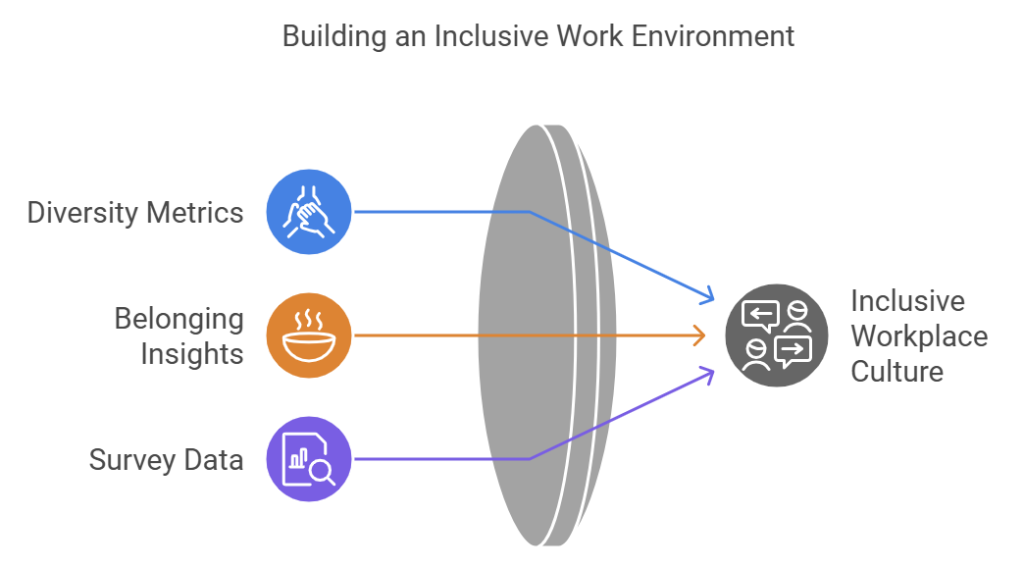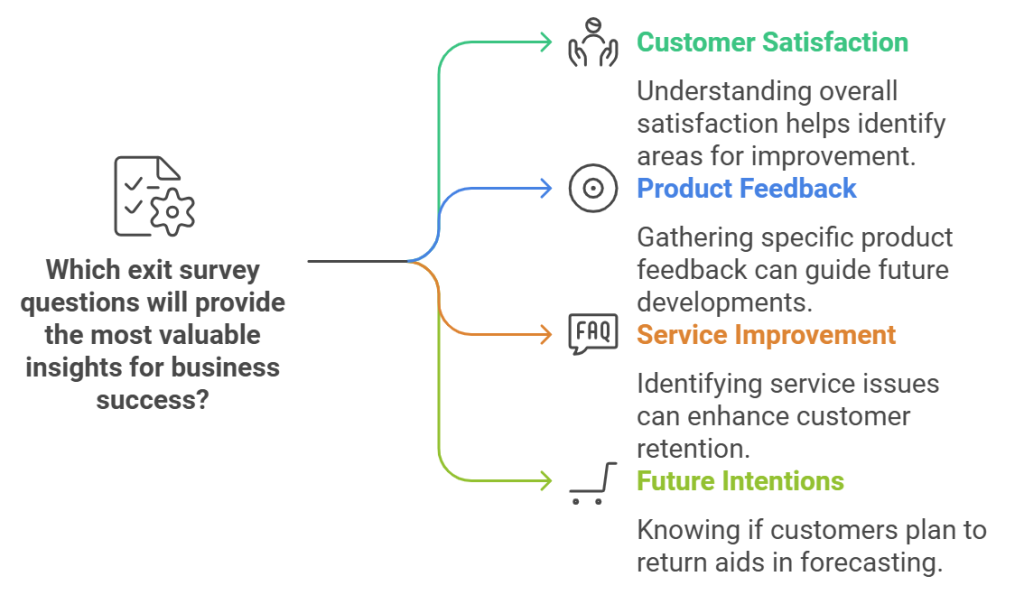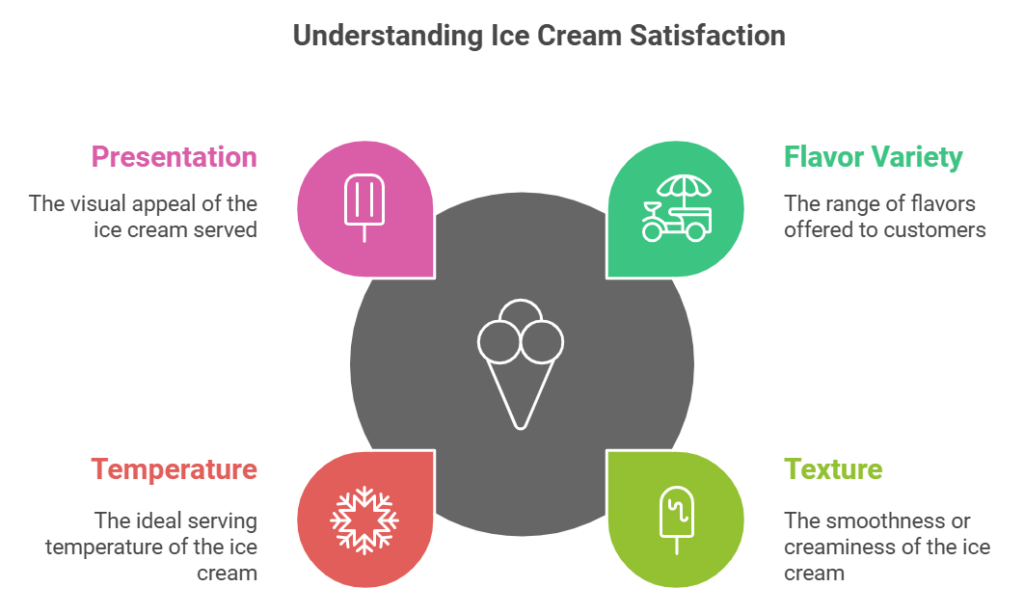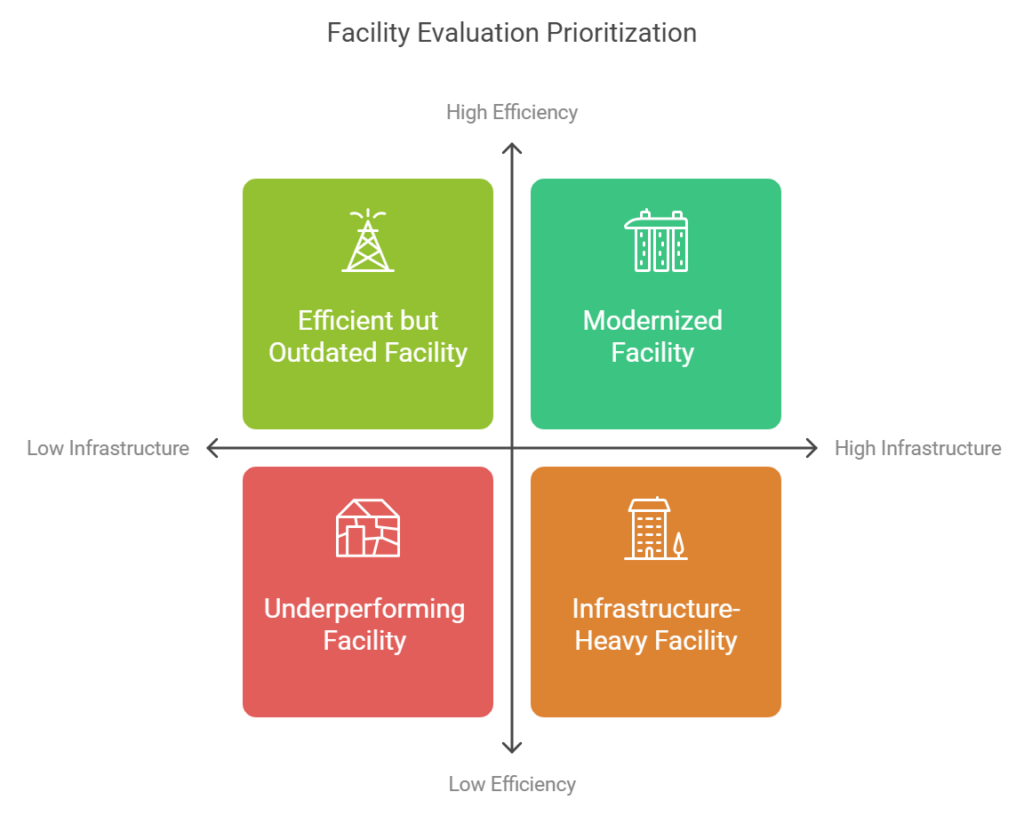
Inclusion survey questions assess workplace diversity and belonging, providing insights to drive meaningful changes for a more inclusive work culture.
In today’s fast-paced, globally connected business landscape, creating a diverse and inclusive workplace is no longer a nicety, but a necessity. A workplace that values and celebrates diversity is better equipped to attract and retain top talent, drive innovation, and improve business outcomes.
However, creating such a workplace requires more than just good intentions. It demands a deep understanding of the organization’s current diversity and inclusion landscape, as well as a willingness to confront and address any existing biases and barriers.
This is where inclusion surveys come in a powerful tool for organizations looking to gauge their diversity and inclusion efforts and identify areas for improvement. But, what makes an inclusion survey truly effective? And, what questions should organizations be asking to get the most accurate and actionable insights?
The Importance of Inclusion Surveys
Inclusion surveys are a crucial component of any diversity and inclusion strategy. By providing a safe and anonymous space for employees to share their thoughts, feelings, and experiences, organizations can gain a deeper understanding of their workplace culture and identify areas where they can improve.
Inclusion surveys can help organizations:
- Identify and address biases and barriers
- Improve employee engagement and retention
- Enhance their reputation and attractiveness to top talent
- Drive business outcomes and improve competitiveness
Essential Inclusion Survey Questions
So, what questions should organizations be asking in their inclusion surveys? Here are some essential questions to consider:
Demographic Questions
- What is your age?
- What is your gender?
- What is your racial or ethnic background?
- What is your sexual orientation?
- Do you have a disability?
- What is your job title and department?
Inclusion and Belonging
- Do you feel like you belong at our organization?
- Do you feel like your opinions and ideas are valued?
- Have you ever felt excluded or marginalized at work?
- Do you feel like you can be your authentic self at work?
Diversity and Representation
- Do you think our organization does a good job of representing diverse perspectives and backgrounds?
- Have you ever seen someone from a underrepresented group in a leadership position at our organization?
- Do you think our organization’s diversity and inclusion initiatives are effective?
Bias and Discrimination: Inclusion Survey Questions
- Have you ever experienced or witnessed bias or discrimination at work?
- Do you feel like our organization takes allegations of bias and discrimination seriously?
- Have you ever felt uncomfortable or unsafe at work due to your identity or background?
Employee Engagement and Retention
- How satisfied are you with your job overall?
- Do you feel like you have opportunities for growth and development at our organization?
- Have you ever considered leaving our organization due to concerns about diversity and inclusion?
Open-Ended Inclusion Survey Questions
- What do you think our organization does well in terms of diversity and inclusion?
- What do you think our organization could improve on in terms of diversity and inclusion?
- Do you have any suggestions for how our organization could better support diverse employees?
You Must Know
Craft the Ultimate Workshop Survey Questionnaire: Your Feedback Matters
Crack the Performance Code: 25 Game-Changing Sports Survey Questions That Will Transform Athletes
Best Practices for Conducting Inclusion Surveys
While inclusion surveys are a powerful tool for organizations looking to improve their diversity and inclusion efforts, they must be conducted in a way that is fair, transparent, and respectful. Here are some best practices to consider:
- Ensure anonymity: Make sure employees feel safe and comfortable sharing their thoughts and opinions by ensuring their responses are anonymous.
- Use clear and concise language: Avoid using jargon or technical terms that may be unfamiliar to some employees.
- Make it accessible: Make sure the survey is accessible to all employees, including those with disabilities.
- Keep it short and sweet: Keep the survey concise and to the point to avoid overwhelming employees.
- Follow up and follow through: Make sure to follow up with employees after the survey to share the results and any actions the organization plans to take.
Conclusion: Inclusion Survey Questions
Creating a diverse and inclusive workplace is a journey, not a destination. It requires a deep commitment to understanding and addressing the needs and concerns of all employees. Inclusion surveys are a powerful tool for organizations looking to improve their diversity and inclusion efforts and create a workplace where everyone feels valued, respected, and empowered to succeed.
By asking the right questions and conducting the survey in a way that is fair, transparent, and respectful, organizations can gain a deeper understanding of their workplace culture and identify areas for improvement. Remember, creating a diverse and inclusive workplace is not just the right thing to do it’s also good business sense.




